
Chinese local governments are introducing more policies to expand opening-up. Recently, Hubei Province, Jiangsu Province and Fujian Province have introduced new policies on expanding opening-up and actively making use of foreign investment, including supporting foreign enterprises to enter the service sector such as the healthcare and elderly care industry, to apply for fund for service sector development and to participate in public-private partnership program (PPP). This is a new round of wave in opening-up among local governments after the State Council issued the measures on expanding opening-up and actively making use of foreign capital.
In a recently-issued document, Hubei Province proposed to further reduce or scrap restrictions on foreign investment access and improve openness and transparency in Hubei Free Trade Zone (FTZ). It is noteworthy that the document for the first time makes it clear that it encourages foreign investment in PPP project in Hubei, and that foreign investment will enjoy the same preferential tax policies as domestic capital.
Fujian Province also proposed that it supports foreign investment in the infrastructure construction in Fujian, including energy, transportation, water conservancy, environmental protection and municipal public works. Qualified foreign investment will also enjoy preferential policies for PPP pilot program.
Another common characteristic of these local policies is that they highlight the direct of industry upgrading and the introduction of innovative elements in order to further cultivate new driver for the development of foreign investment.
For example, as a traditional large foreign investment province, Jiangsu Province will build a strong magnetic field to attract foreign investment. It clearly supports foreign enterprises to build R&D center and enterprise technology center, supports them to establish post-doctoral scientific research work station and supports foreign enterprises to participate in provincial science and technology projects.
Financial supports will be provided to well-known multinational companies that set up independent legal entity R&D institutions and R&D headquarters in Jiangsu Province. They should also be in line with local development direction, introduce core technology and have core R&D teams.
Hubei Province also proposed to give financial, tax and land supports to newly established multinational corporate headquarters if they set up functional agencies like foreign R&D center, technology center, procurement center and clearing centers. Meanwhile, it encourages foreign capital to sponsor industrial investment funds in Hubei Province which will be given preferential policies.
The service industry becomes a major area for the expansion of opening-up. Jiangsu and other provinces proposed to support qualified foreign enterprises to apply for provincial special guiding capital for modern service industry development and fund for the modern service industry development.
In addition, to equally treat foreign investment and provide a fair competitive environment is another focus of these new local policies. For example, Fujian Province proposed that foreign enterprises should be treated equally or even given priority in the process of scientific research innovation, transformation and upgrading, technological transformation, introduction of talents, intellectual property protection, standardization construction, business license and qualification application. Restrictions should not be imposed on foreign enterprises without legal authorization.
Early this year, the State Council came up with 20 measures to promote foreign investment in a document. It clearly specified loosening the restrictions on foreign investment access to the service, manufacturing and mining industries. This is regarded as China’s overall plan and top design on its foreign investment policies under the new circumstances.
The new policies are introduced to adapt to the new situation of foreign investment in recent years. In terms of growth rate, China's foreign investment has been steadily growing at a medium and low speed in recent years. There is no more double-digit growth. Data from the Ministry of Commerce (MOFCOM) shows that China attracted 813.22 billion yuan foreign investment in 2016, a year-on-year increase of 4.1 percent, declining from the 6.4 percent growth over the previous year. In terms of structure, the proportion of foreign investment in the service industry was over 70 percent.
Liang Guoyong, economic affairs officer with the United Nations Conference on Trade and Development, told the Economic Information Daily that as the recovery of international direct investment lacks momentum after the global financial crisis, the competition in attracting foreign investment has intensified. The trend of industrial transfer has weakened. Re-industrialization and other policies in developed countries have led some production capacity flowing back. China is now facing two challenges in attracting foreign investment: its competition with low-income countries may reduce foreign investment; policies in industrialized countries will make more foreign investment flow back. Particularly, under the background of rising wages and manufacturing costs, how to maintain international competitiveness in attracting foreign investment has become an important issue.
"Investment plays a key role in stabilizing growth and creating job in the short run. At present, besides public investment and state-owned enterprises investment, the role of private investment and foreign investment urgently needs to be enhanced. To guide the international capital inflows is of critical importance to keep balance of international payment,” Liang pointed out. To open the service industry and support foreign investment to participate in infrastructure construction via franchise mode is expected to promote foreign capital inflow to grow. It is also conducive to the opening and competitions in certain fields.
Bai Ming, deputy director of the International Market Research Institute, Chinese Academy of International Trade and Economic Cooperation, MOFCOM, told the Economic Information Daily that the development environment of China's export-oriented economy has undergone profound changes. As the existing international market becomes increasingly limited, local governments should combine their own advantages and practical conditions to seek for new dividends while opening-up.
As the pilot program has been launched nearly one year, the MOFCOM, the National Development and Reform Commission and other departments made further deployment on further advancing the comprehensive pilot program on new systems for developing an open economy. MOFCOM spokesperson Shen Danyang said that China’s new open system that is integrated with development zones, parks and areas is constantly improving. The pilot area of new systems is integrating with the national strategy such as the. An all-round new opening pattern is forming at a faster pace.
Bai Ming also pointed out that in addition to the pilot FTZ and the comprehensive pilot program on new systems for developing an open economy, other pilot programs concerning cross-border e-commerce, service trade innovation, opening of the service industry, market procurement and customs clearance integration, have been on progress, The “Belt and Road” Initiatives and FTZ are advancing rapidly.
Translated by Coral
















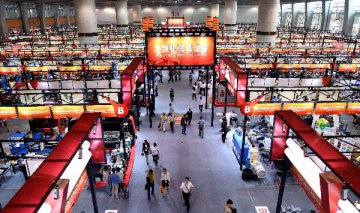
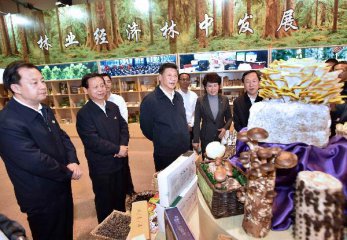
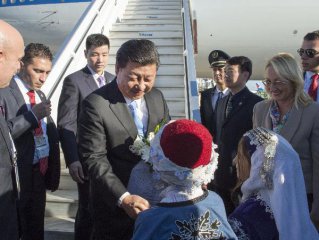
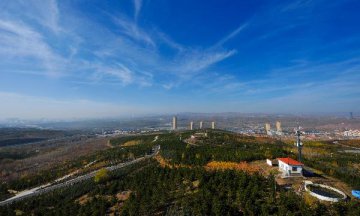

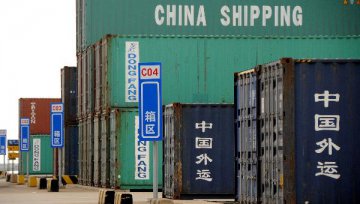


Latest comments